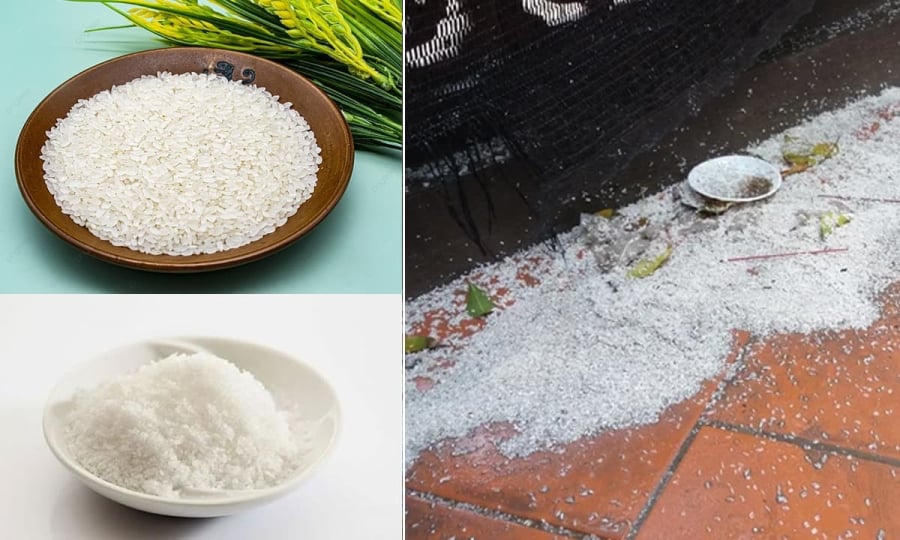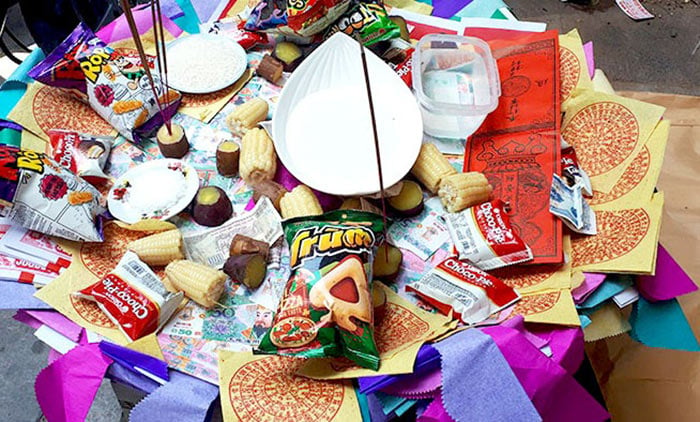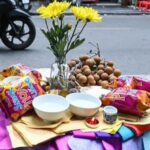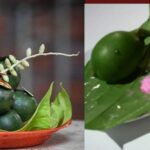During holidays, family reunions, or ancestor worship ceremonies, many Vietnamese families prepare offerings of rice and salt to show their respect and devotion to their ancestors and deities. However, knowing what to do with the rice and salt after the ceremony is a concern for many.
Proper Disposal of Rice and Salt After Ancestor Worship
In Vietnamese culture, rice and salt are essential items during ancestral worship ceremonies. They symbolize warmth, prosperity, and peace, and are also a way for descendants to plead with their ancestors for protection and blessings of safety and abundance for their family.

After the ceremony, there are two common ways to dispose of the rice and salt:
– Reuse: Since the rice and salt have been offered to the ancestors, they are considered blessed and can be reused for subsequent meals.
– Burn with joss paper: This practice is believed to dispel negative energies and prevent them from affecting the well-being of the family.
Disposal of Rice and Salt After the Kitchen God Ceremony
The Kitchen God Ceremony is an integral part of Vietnamese cultural traditions. In addition to preparing a feast, many families also offer rice and salt during this ceremony.
After the ceremony, sprinkling the rice and salt around the house is believed to ward off evil spirits and negative energies, bringing peace to the family.
Some people also keep the rice and salt offered during this ceremony, believing that it brings good luck, prosperity, and blessings. However, the decision to keep or discard these items depends on the beliefs and customs of each family and region.
Disposal of Rice and Salt After Lunar New Year Eve Ceremony
The Lunar New Year Eve Ceremony marks the end of the old year and the beginning of a new one. During this ceremony, some families include rice and salt on the offering tray, symbolizing abundance and warmth.
According to Feng Shui, after the ceremony, it is advisable to scatter the rice and salt around the house. This act symbolizes charity for all beings and is believed to bring peace, prosperity, and good fortune to the family in the coming year.
Disposal of Rice and Salt After Ancestral Worship and Ghost Festival

Rice and salt are indispensable offerings during the Ancestral Worship and Ghost Festival in the seventh lunar month. According to Feng Shui experts, it is advisable to scatter the rice and salt around the outer perimeter of the house, throwing it in multiple directions, preferably from inside the house outwards. It is important to note that one should never throw rice and salt back into the house.
It is important to note that scattering rice and salt inside the house is considered taboo, as it may invite negative energies that could affect the baby and the entire family.
The Oldest Market in Hue: A 170-Year-Old Legacy That Endured Through Time
The Gia Lac market exudes a unique charm, harking back to the nostalgic scenes of a bygone Tet holiday brimming with warmth and rich cultural heritage. It is not merely a traditional marketplace but a cultural hub, seamlessly connecting the past with the present, the sellers with the buyers, and, most importantly, preserving the quintessential spiritual values of Hue.
The Ultimate Guide to Buying Betel and Areca Nuts for Ancestor Worship: Uncover the Secret to Attracting Wealth and Prosperity
Chewing betel and areca nuts is an integral part of Vietnamese culture, often used as an offering during worship. However, not everyone knows the correct way to prepare and present these offerings. We are here to guide you through the process, ensuring your offerings are not only culturally significant but also perfectly prepared.





































